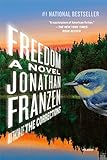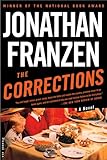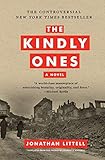1.
There are a few digs at you, reader, in Purity, Jonathan Franzen’s big new novel. Here’s one buried in the musings of Andreas Wolf, the sociopathic leader of a data-dumping transparency project — one analogous to but at odds with WikiLeaks: “The more he existed as the Internet’s image of him, the less he felt like he existed as a flesh-and-blood person. The Internet meant death.” Have you read a take or a tweet excoriating Jonathan Franzen? You inhabit a world “governed…by fear: the fear of unpopularity and uncoolness, the fear of missing out, the fear of being flamed or forgotten.”
Ironically, the Internet — the thing with which Franzen’s opprobrium is most frequently associated — is also the vehicle by which his utterances become collectively memorable. The Internet is why I know, for example, that 20 years ago, Franzen expressed anxiety about cultural irrelevance in the type of tone-deaf revelation primed to annoy less-famous writers and destined to become characteristic: “I had already realized that the money, the hype, the limo ride to a Vogue shoot weren’t simply fringe benefits. They were the main prize, the consolation for no longer mattering to the culture.”
No one should be permanently lashed to his or her remarks of decades past, but Franzen, with his frequent public grumping, invites a certain amount of scrutiny. And despite the easy prey of Franzen’s Vogue shoots, that essay, “Perchance to Dream,” published in Harper’s in 1996, contains an artist’s statement that remains the tidiest, most cogent thesis on the project of Franzen’s writing: “It had always been a prejudice of mine that putting a novel’s characters in a dynamic social setting enriched the story that was being told; that the glory of the genre consisted in its spanning of the expanse between private experience and public context.”
Of course, nailing the “public context” was a source of considerable anxiety:
I’d already worked in contemporary pharmacology and TV and race and prison life and a dozen other vocabularies; how was I going to satirize Internet boosterism and the Dow Jones as well while leaving room for the complexities of character and locale? Panic grows in the gap between the increasing length of the project and the shrinking time increments of cultural change…
With Purity, the project is long, the cultural change significant, time of the essence. Time presses in all of Franzen’s novels, for reasons of health — human or environmental — or economics, or plate tectonics. In his latest, several plot devices add urgency: there’s a home on the verge of foreclosure, a sensational news story in danger of being scooped, more data in need of the “disinfecting” sunshine of the aforementioned Wolf’s Sunlight Project.
 If there’s anything that denotes a Franzen text, it’s a socio-cultural rant, and the slightly Bill-and-Ted-like deployment of the adjective “excellent.” Here’s Walter Berglund of Franzen’s last novel, Freedom, telling the employees of an Appalachian body-armor plant what’s what:
If there’s anything that denotes a Franzen text, it’s a socio-cultural rant, and the slightly Bill-and-Ted-like deployment of the adjective “excellent.” Here’s Walter Berglund of Franzen’s last novel, Freedom, telling the employees of an Appalachian body-armor plant what’s what:
‘You, too, can help denude every last scrap of native habitat in Asia, Africa, and South America! You, too, can buy six-foot-wide plasma TV screens that consume unbelievable amounts of energy, even when they’re not turned on. But that’s OK, because that’s why we threw you out of your homes in the first place, so we could strip-mine your ancestral hills and feed the coal-fired generators that are the number-one of cause of global warming and other excellent things like acid rain.’
 Or Chip of The Corrections, foaming at the sister who is just trying to get him upstairs for a parental lunch:
Or Chip of The Corrections, foaming at the sister who is just trying to get him upstairs for a parental lunch:
‘I’m saying the structure of the entire culture is flawed. I’m saying the bureaucracy has arrogated the right to define certain states of mind as “diseased.” A lack of desire to spend money becomes a symptom of disease that requires expensive medication. Which medication then destroys the libido, in other words destroy the appetite for the one pleasure in life that’s free, which means the person has to spend even more money on compensatory pleasures. The very definition of mental “health” is the ability to participate in the consumer economy. When you buy into therapy, you’re buying into buying. And I’m saying that I personally am losing the battle with a commercialized, medicalized, totalitarian modernity right this instant.’
Franzen, for all that he attracts online derision, knows that nobody is irredeemable who has a sense of humor (as he told the Guardian in a recent profile, he considers himself a “comic novelist”). Comic, ranting males abound in his last two novels, but Purity as a whole is comparatively humorless in ways that are both intentional and not; humor’s absence, on the intentional front, is what damns the leaker Wolf and a cruelly drawn character named Anabel Laird, the mother of the novel’s heroine, Purity “Pip” Tyler.
 Purity is baggy — comprising several deep, character-driven sections linked together by a series of unlikely events. Wolf’s segments are in a jarring, significantly darker key than that of Franzen’s previous fiction. Wolf wrestles throughout the book with a second self he calls “the Killer;” in some especially gross moments he almost channels Jonathan Littell’s seemingly placid, ultimately depraved Nazi narrator in The Kindly Ones. Here’s Wolf recalling his troubled mother: “He remembered remembering, when he saw her pussy in the rose garden, that this wasn’t the first time he’d seen it — that something he’s thought was a disturbing dream from his early childhood hadn’t actually been a dream.” Or here, exercising his sexual frustrations about Pip: “It was a relief to stop fighting the Killer and submit to the evil of his idea; it turned him on so much that he went to the spot on the floor where Pip had stood naked and used the panties she’d left to milk himself, three times, of the substance he hadn’t spent in her…”
Purity is baggy — comprising several deep, character-driven sections linked together by a series of unlikely events. Wolf’s segments are in a jarring, significantly darker key than that of Franzen’s previous fiction. Wolf wrestles throughout the book with a second self he calls “the Killer;” in some especially gross moments he almost channels Jonathan Littell’s seemingly placid, ultimately depraved Nazi narrator in The Kindly Ones. Here’s Wolf recalling his troubled mother: “He remembered remembering, when he saw her pussy in the rose garden, that this wasn’t the first time he’d seen it — that something he’s thought was a disturbing dream from his early childhood hadn’t actually been a dream.” Or here, exercising his sexual frustrations about Pip: “It was a relief to stop fighting the Killer and submit to the evil of his idea; it turned him on so much that he went to the spot on the floor where Pip had stood naked and used the panties she’d left to milk himself, three times, of the substance he hadn’t spent in her…”
Purity’s “public context,” as Franzen put it in 1996, also feels more urgent than that of his previous work; there’s a polemic built into Wolf that his character is finally a bit too flimsy to support. You’d think that someone like Wolf would worship the Internet for its purifying possibilities; but its potentiality is more obliterating — more like the state in George Orwell’s Oceania — than it is a vehicle for liberation. In Wolf’s conception, the Internet is aligned with the totalitarian system that characterized the East Germany of his youth: “If — and only if — you had enough money and/or tech capability, you could control your Internet persona and, thus, your destiny and your virtual afterlife. Optimize or die. Kill or be killed.” In a keystone passage, Franzen intersperses a description of East Germany under Socialism with the tech orthodoxies and infelicities of the present day:
The real appeal of apparatchikism was the safety of belonging. Outside, the air smelled like brimstone, the food was bad, the economy moribund, the cynicism rampant, but inside, victory of the class enemy was assured. Outside, the middle class was disappearing faster than the icecaps, xenophobes were winning elections or stocking up on assault rifles, warring tribes were butchering each other religiously, but inside, disruptive new technologies were rendering traditional politics obsolete. Inside, decentralized ad hoc communities were rewriting the rules of creativity, the revolution rewarding the risk-taker who understood the power of networks. The New Regime even recycled the old Republic’s buzzwords, collective, collaborative. Axiomatic to both was that a new species of humanity was emerging. On this, apparatchiks of every stripe agreed. It never seemed to bother them that their ruling elites consisted of the grasping, brutal old species of humanity.
It’s unclear, ultimately, why Wolf, with his mistrust of the Internet’s role in society, has spent so much time, so much effort, to set up his Bolivian hacker’s commune. (Because he’s a little insane, basically.) And his Sunlight Project, apart from the spectacular descriptions of its setting in a Bolivian valley, takes place essentially in front of a green screen, cobbled together with references to a “private fiber-optic line,” a “network of malcontents and hackers,” “facial-recognition software,” or an “impenetrable maze of electronic red herrings to protect the source.”
Perhaps due to generational differences, something about Franzen’s “public context” has never quite rung true to me — his college freshman’s September 11th in Freedom didn’t match my freshman self, staring blank-faced at the television in week two of college. But it has also never much mattered to me, because I think Franzen’s ability to convey the private experience is often transcendent and perfect. I can just look at the final paragraph of The Corrections and start crying — Alfred and Enid and the ice chip and the changes she’s going to make in her life. Goddamn.
But in Purity, like Freedom, the world is sometimes only an echo of a world that should be familiar. Gertrude Stein said of Oakland that there was “no there there,” and Franzen seems content to take her at her word. Pip, too, occasionally lacks a “there;” in the end she works as a character — you root for her happiness — but Franzen includes oddly few context clues for her. Who were the friends that Pip slowly broke up with via aloof text messages and hangout-cancellations? What clothes did they wear; what things did they read; what shows did they watch? Barring financial constraints, would Pip see Magic Mike XXL in the theater? $130,000 in student loans is alleged to loom over Pip, clouding her future happiness, but the day-to-day math of her straitened circumstances is missing, with none of the lovingly crafted accounting of pitiful finances that resulted in Chip Lambert’s memorable salmon-down-the-pants scene in The Corrections. Nothing about the description of the Oakland squatters’ domicile that Purity inhabits — or her co-residents — necessarily convinces the reader that Jonathan Franzen has embedded with Occupiers and freegans.
Purity sang for me in its least overtly culturally relevant moments — like the complex romantic history of Pip’s mentor (and Wolf’s brother/foil) Tom Aberant, or that of his partner Leila Helou, who blooms into brilliant life for one section and then more or less fades away. There’s the twisted romance of Tom and Pip’s mother, Anabel, put forth in a memoir saved on Tom’s hard drive as “A river of meat.” Like Patty Berglund in Freedom, Tom’s explosive personal document drives events in the text. This is a vengeful — on Franzen’s part, it seems — piece of writing that describes Tom’s long marriage with a comically unhinged harpy. Anabel is an artist; for much of their marriage she is at work on a decade-long performance piece visually documenting every centimeter of her own body: “You need to do whatever it takes to be finished,” Tom tells her. “You know I’ve never finished anything in my life,” she says.
She beat her fists on her offending head. It took me two hours to talk her down and then a further hour to emerge from the sulk she’d put me in by suggesting that my aesthetic was vulgar. Then, for three hours, I helped her block out a rough schedule for completing her project, and then, for another hour, I began the transfer of important thoughts from the first of her forty-odd notebooks into a new notebook, written by me. Then it was time for her three hours of exercise.
It’s cruel, but it works. We never get Anabel’s point of view, although Pip more or less corroborates Tom’s account with her experience of being Anabel’s dutiful child. But unlike Tom, Pip has access to Anabel’s most endearing feature: “The pure, spontaneous love in that smile, every time she’d caught sight of Pip…Her mother had needed to give love and receive it…Was that so monstrous?”
2.
In a recent article in Harper’s, William Deresiewicz lamented the neoliberalism that has taken over the university campus. “For all its rhetoric of freedom and individual initiative, the culture of the market is exceptionally good at inculcating a sense of helplessness. So much of the language around college today…presumes that young people are the passive objects of economic forces. That they have no agency, no options.” Franzen gives Pip a healthy dose of agency, considering the challenges posed by her financial situation and her difficult mother, but he also gives her a Dickensian surprise, making a millennial fairy-tale out of the story that somewhat corroborates Pip’s oblivious young-person-ness: “The flight, in a too-small jet, dodging thunderstorms, cured Pip of any desire for future air travel. She expected death the whole way. What was interesting was how quickly she then forgot about it, like a dog to whom death was literally unimaginable…”
As Pip hits tennis balls with a young man in a touching, chaste courtship, Franzen gives us all tacit permission to stop caring about the big stuff; it’s nearly an acknowledgement that the big stuff, globally speaking, is never really what matters in his novels — not nearly so much as love, anyway: “All over the state, reservoirs and wells were going dry, the taste and clarity of tap water worsening, farmers suffering, Northern Californians conserving while Orange County set new records for monthly consumption, but none of this mattered for the hour and a half that she was on the court with Jason.”
 Franzen’s last book was The Kraus Project, an annotated translation of essays by the Viennese writer Karl Kraus. In one of these, Kraus lashes out against a style of brief, impressionistic journalism ascendant in his day. “Writing feuilletons means twining curls on a bald head,” Kraus grumped, and thus provided a point of entry for Franzen’s own celebrated brand of grumping. By coincidence, mere days after the release of Purity, New Directions will publish a collection of feuilletons by Joseph Roth, the great Austro-Hungarian novelist and journalist — and a contemporary of Kraus — beautifully translated by Michael Hofmann. Roth was a master of shedding light onto the “public context” in the uneasy interwar moment when Germany was gearing up for the great smash-up, when “in these assembly halls, where people used to go to smooch and drink, they [were] now daubing swastikas and Soviet stars on grimy walls.”
Franzen’s last book was The Kraus Project, an annotated translation of essays by the Viennese writer Karl Kraus. In one of these, Kraus lashes out against a style of brief, impressionistic journalism ascendant in his day. “Writing feuilletons means twining curls on a bald head,” Kraus grumped, and thus provided a point of entry for Franzen’s own celebrated brand of grumping. By coincidence, mere days after the release of Purity, New Directions will publish a collection of feuilletons by Joseph Roth, the great Austro-Hungarian novelist and journalist — and a contemporary of Kraus — beautifully translated by Michael Hofmann. Roth was a master of shedding light onto the “public context” in the uneasy interwar moment when Germany was gearing up for the great smash-up, when “in these assembly halls, where people used to go to smooch and drink, they [were] now daubing swastikas and Soviet stars on grimy walls.”
I read this haunting compilation — one which utterly gives the lie to Kraus’s denigration of the feuilleton form — concurrently with Purity. About Germany in this awful, pregnant moment, Roth wrote:
Anyone who has sat at the bedside of a sick patient will know that the hours are not all pathos and anguish. The sick man will talk all kinds of nonsense, ridiculous, trivial, unworthy of himself and his condition. He is missing the regulating consciousness. That’s just want is missing in Germany: the regulating consciousness.
I can’t say how well Franzen writes Germany — according to Roth in 1923, it is the “least understood nation in all of Europe” — but I know that he is interested in the “regulating consciousness.” The noble art of journalism practiced well, the good sense of Pip, whatever it is that keeps Tom from strangling Anabel, whatever it is that’s lacking from Andreas Wolf’s strange brain — these things are that consciousness embodied. Franzen is also, I think, interested in creating the kind of luminous societal prophesy that animates Roth’s short, wondrous pieces. But Roth himself knew the pitfalls of that effort:
From time to time I think of describing the ‘German,’ or defining his ‘typical’ existence. Probably that isn’t possible. Even when I sense the presence of such a thing, I am unable to define it. What can I do, apart from writing about individuals I meet by chance, setting down what greets my eyes and ears, and selecting from them as I see fit? The describing of singularities within this profusion may be the least deceptive; the chance thing, plucked from a tangle of others, may most easily make for order. I have seen this and that; I have tried to write about what stuck in my senses and my memory.
I think Jonathan Franzen is a wonderful novelist. I don’t know him, but I often feel like he knows me, and for that I love him. His work is most vulnerable to attack when it tries too visibly to be the chief diagnoser and prognosticator of “the culture.” It is most meaningful when it deals in those “singularities within the profusion.” Still, it endeavors always to do both — and therein, I think, lies its essential goodness, its essential purity.









